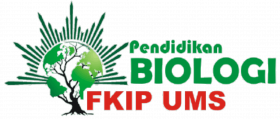Scientific Learning with PJBL and PBL Models of Science Process Skills Student Learning Outcomes
Abstract
This study aims to determine 1. differences in student learning outcomes based on high and low science process skills. 2. interaction between project-based learning and problem-based learning models with science process skills on student learning outcomes. This research uses experimental research with a research design using a 2x2 factorial design. Sampling using purposive sampling. The sample of this research was 43 students of 8th grade of Islamic Junior High School. The instrument used is the treatment instrument namely lesson plans, worksheets. The data collection instrument was a test of learning outcomes in terms of knowledge and science process skills, an attitude aspect questionnaire and an observation sheet for skills learning outcomes. Data analysis using SPSS 16.0. The results of the study concluded that: 1. There were differences in learning outcomes in the aspects of knowledge, attitudes and skills between students who were given learning using project-based learning and problem-based learning models who had high and low science process skills. The scores of knowledges, attitudes and skills of students who were given project-based learning were 82.24 78.10 and 83.67 respectively, while students who were given problem-based learning were 80.00 72.59 and 80.64. 2. There is interaction between the project-based learning model and the problem-based learning model on student learning outcomes because the Anava Test also shows 3 aspects of learning outcomes have a p-value <0.05, which means there is interaction in the Project Based-Learning and Problem models -Based learning with science process skills to the results of learning aspects of knowledge, attitudes and skills.




